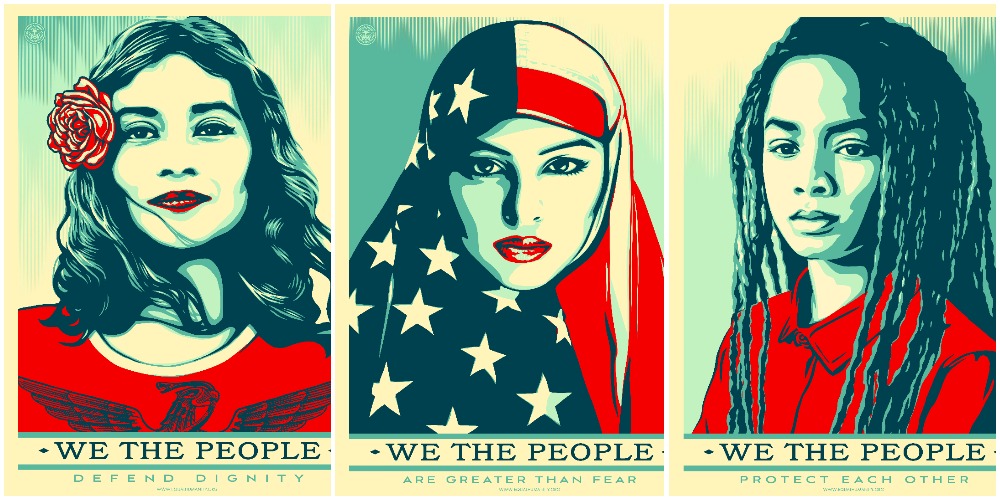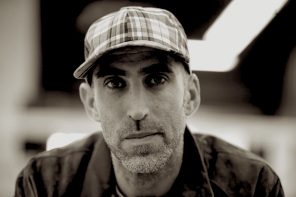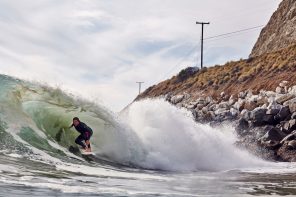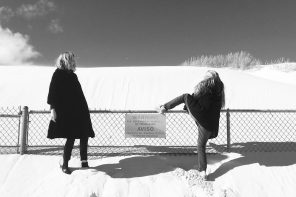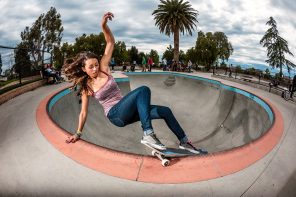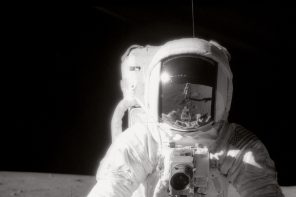How the Woman’s March Ignited From A Single Spark In Hana
We asked 30 people who we admire to each interview one person they admire. That’s the concept behind the Interview Issue presented by Design Within Reach.
Shep Gordon chose wisely.
Shep Gordon: I came across your story early on. What really impressed me was the power of one person. I’ve heard that phrase so many times during my life, but never saw it as clearly as a lady in Hana (Hawaii) taking an action that really changed the world. Hopefully for a long time, if not certainly for a day. I was really curious about that moment—because it’s always a moment. Was that moment a journey you’ve been on your whole life, or was it a random moment? Were you just called to action? What I mean by that is did you always lead the life of a political activist trying to engage people? Have you put out a thousand things on Facebook and this one just happened to spark? Or was this really just a moment in the universe where you got an idea and took action?
Teresa Shook: I’ve always been a person who’s been able to make an idea happen. It was just the universe coming together to pick this up and make it happen.
I thought, ‘If a million women showed up in Washington D.C. …’
SG: Can you take us into that time for a moment? You’re cooking dinner, or you’re sitting on a chair, or you’re having a glass of wine, or you’re looking at TV? What got you to that moment?
TS: I had actually been texting with my sons. I have one son in Seattle and one in Austin and we were talking about the election, and we were all upset. Because I’m in Hawaii, we’re up later than the rest of the U.S. I already knew that he won, and I was dumbfounded and upset. I went to bed like that and then I got up the next day, and I’m numb. I’ve always been active in social justice issues—as a lawyer, that was something I was passionate about. Especially women’s rights and domestic violence issues, but I would never have called myself an activist. I was not an activist.
We all need to be treated equally. I was always standing up for people who needed help in whatever way. I woke up the next day (after the election) and I was making my coffee, and I wanted somebody to talk to. I was staying out in Kipahulu then because I hadn’t been able to get back into my house yet. I’d been in Africa and I had rented out my house and I had to give them notice, so I was renting a little cottage out in Kipahulu, and making my coffee.
SG: You’re off the grid? It’s generator power?
TS: Yeah, I was off the grid. I had satellite WiFi. That’s why I wanted to talk to people about what had happened because I just couldn’t wrap my mind around it. I mean, I just couldn’t. I kept saying, “This is not our country.” It also woke up in me the love I have for my country, which really, that’s probably not something I would have thought of before. But I really realized how much I love my country, and how much that this isn’t what our country is about. I didn’t believe it. I really didn’t believe it. I wanted to get somewhere to talk to people, to commiserate, but also to prove to myself that this is not what our country is about, that most of us don’t think that way.
Three days before, someone had put me in that Pantsuit Nation (a pro-Hillary Facebook group), which was really odd, because that’s not something I would ordinarily have joined. I mean … this is weird and it’s going to sound weird because I’m really not airy fairy … but during this a lot of things happened. Serendipitous kinds of things. Like why did that friend put me in Pantsuit Nation three days before that? I have no idea. You know what I mean?
I thought, “OK, it will be like-minded people, I’ll have people I can talk to and I can sort of see what’s happening.” People were really depressed and angry. But more than anything, they were feeling powerless and hopeless. What that does in me is it makes me rise up and want to do something, because that’s how I resolve feeling powerless.
All it took was for one person to say, ‘I’m with ya.’
SG: That’s in your DNA, yeah?
TS: Yes, it’s in my DNA. I can’t just sit and do nothing. I’m feeling that we have to do something. Then that’s when I got the idea. I thought, “If a million women showed up in Washington D.C. …” Because I was really outraged by all of it, but I was extremely outraged by the rhetoric around women, because I thought “been there, done that.” I thought we had moved forward from that. As a lawyer, when I first practiced law, I had to deal with that and I thought things were better. I mean not perfect, but better.
I was on Facebook and there is a chat and people are commenting and I started saying, “Well, I think we should march on Washington.” There was pushback. People were saying, “Well, it’ll be too cold,” or, “it’s too soon.” They had a lot of reasons why we couldn’t do it. I just kept saying in different ways the same thing, “No, we show up. A million people, they can’t ignore that. It’s not the same as being on social media. If you show up in those kinds of numbers, it’s going to make an impact. We have to show we’re strong. We can’t just sit down and be powerless.”
Finally a woman, her name was Jamie I think, said, “I’m in.” That’s all it took was for one person to say, “I’m with ya.” Then I went off and I created an event. It was a March on Washington, and I picked the day after the inauguration because I wanted to say, “Welcome to your first day of office.”
Then I put in the reasons we were marching: A fair, just and inclusive America, and to stand up for women. Women were powerful, and they were going to hear our voice, and we were never going to be silent again.
I was dumbfounded when I woke up the next day.
Then, I went back on the chat and told people I made this event, and I invited some of them who I didn’t know. I didn’t know any of these women, and then I invited some of my own friends and I went to bed. There weren’t that many people … that’s how my day went. I was spending my day getting that going and telling people about it and probably did some other things during the day and then went to bed feeling, “Well, I’ve done something.” I also felt like, “Well, there’s not a lot of interest, I hope this gets picked up.” Then, the next day is history. The invite went viral.
What was interesting was I had made it a private event because people warned me about trolls, and if it was public from the get-go, it might never get off the ground because the trolls would try to shut it down. If the event got big, we would deal with that later. I was dumbfounded when I woke up the next day, basically Facebook locked it down because there were so many requests for invitations. Because then, the only way anyone could come was by invitation.
SG: Right, because it’s private, yeah.
TS: Yeah, and so Facebook had basically locked it down and no one could get an invitation. My inbox was full in Messenger, my Facebook friend request was full, people were just clamoring to say, “I want to come. How can I help? Send me an invitation, I can’t send an invitation. Help me, help me, help me.”
SG: That’s so great.
TS: Yeah. That’s how it got started.
They were going to hear our voice, and we were never going to be silent again.
SG: Now you’re seeing this amazing reaction to your one second of thought translating into a million people and you leave Hana—for people who don’t know, Hana has maybe 1,500 residents—for Washington DC?
TS: About 1,500, yes. Out in the middle of nowhere.
SG: Yeah. Just beautiful, it’s a winding road drive to the airport.
TS: Yes—rugged, beautiful, mountain on one side, ocean…
SG: Yeah, as beautiful as it can get. As one human being, I’m sure you are thinking, “Wait, I’m going to a place where I may be in front of a million people.” What was that moment like when you actually got on stage and you now have the energy of a million people?
TS: Love. The love continues. It was hard not to cry. The whole time I was there, I was crying. I picked women who picked women, and then it grew into the movement.
Then to see the manifestation, and being on the stage, a million people pouring love into you, physically is overwhelming. It’s still hard to process. Yet, there is this genuine love that they gave me and that I gave back. That was what was the most palpable when I was on stage was the love. It was reciprocal. I can’t explain it more than that. There was an energy, there was such a solidarity. To me, it was like the best in humanity stood up that day and that’s who we are as a people.
SG: Manifestation of a dream–
TS: Yeah, that was what the vision was and that’s what I believed in, and there it was.
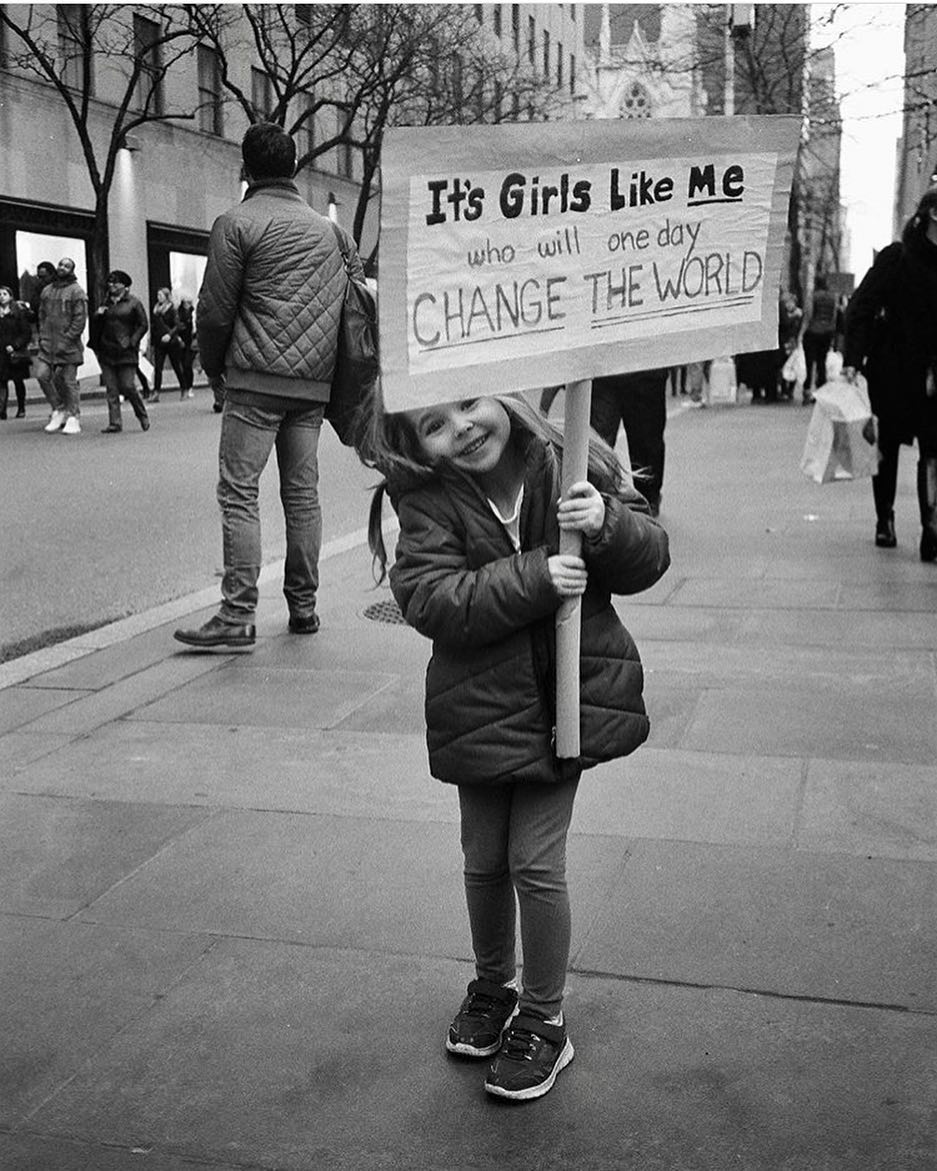
SG: How would you say it’s changed your life? How did that moment of manifesting something so big … so big very few people in the course of our planet that have been able … like Martin Luther King was able to manifest it. There’ve been certain people who’ve been able to manifest it and here you are from Hana traveling into this energy of pure love. How do you think it’s changed you? What’s different when you came back to Hana, if anything? Are you trying to manifest more dreams? Or you’re letting it be natural?
TS: I’m trying to let it be natural. Sometimes I want to go back to the mainland and I want to march. Other times I realize that’s not my path, and whatever my path is will be revealed. Mostly, for me, it’s still about connecting with all these people, because people still reach out to me. It hasn’t changed who I am. I’m still in Hana. It was interesting—I wasn’t sure how the community would respond because Hawaiians, it’s kind of not their bag, but even they came up and hugged me.
SG: I’m sort of curious—who your heroes were in life growing up? If you had your last dinner and you could invite three people to the last dinner, who would you want to be with? I have a feeling they’re probably going to be people who followed similar paths, but I’m curious.
TS: Yeah. Martin Luther King Jr. and John F. Kennedy … and there should probably be a woman in there that I’m blanking on right now. Gandhi was another, he was also a role model.
SG: Readers of Whalebone—especially the women who are going to feel empowered—maybe tear up, maybe throw you a high five. In a lot of cases, they’re going to be asking the question, “How can I do that? How can I affect the world and get across a dream?” Do you have any advice for them?
TS: People ask me that all the time, and I say, “I don’t know if your dream will become that big. I never thought that mine would have, but you just start where you are and do what you can and don’t worry about whether that’s going to become a giant thing.”
I did it because I thought it was the right thing to do, but I didn’t really think, at least I couldn’t have told you that that would have happened, that would have been the outcome. That was my hope, but I didn’t do it because I wanted that. That wasn’t the only reason I did it. I think people just have to pick what they’re passionate about and then do something about it, make a step towards it, even if it’s very small.
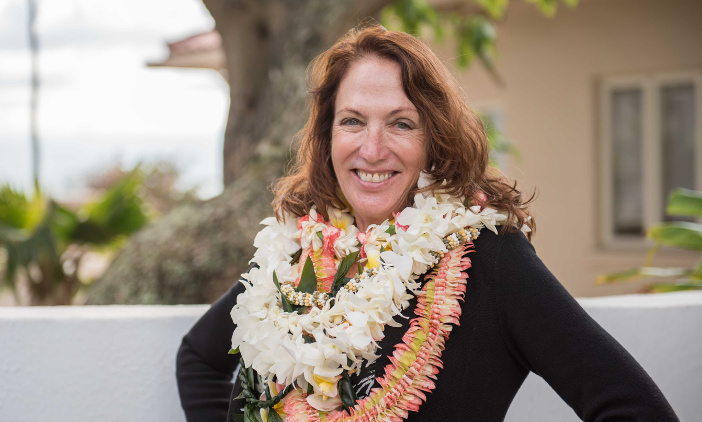
Teresa Shook
I don’t know if your dream will become that big. I never thought that mine would have, but you just start where you are and do what you can and don’t worry about whether that’s going to become a giant thing.
SG: That’s great advice. I think there’s an amazing army of people out there who would love to follow in your footsteps.
TS: I think the more of us who check in with our passions and what our truth is—what we really care about—the better. Because there’s so much coming at us right now and we can’t all cover everything. You have to pick what you believe in and what you are passionate about and then go for it in whatever way you can.
SG: Do you think the flame is still alive? Are you seeing the flame?
TS: Yes!
SG: People are carrying the torch?
TS: Yes. I see so many grassroots organizations, there’s so many people standing up for social justice causes, which I think have been dormant for a while. There are so many people really caring now about what happens to the world and America, and they’re not just being quiet about it anymore. I think we’d become kind of apathetic—I had. It’s my responsibility to make sure that this world is a better place. It’s everyone’s responsibility, so I think that’s what we’re seeing.

